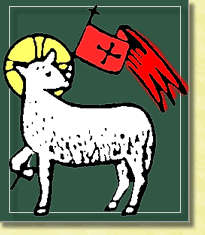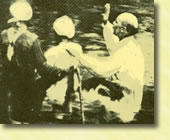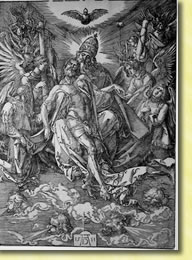I received the following today, which succinctly summarizes questions I have been asked numerous times in recent years:
Dear Sir,
Just curious about how you can be a part of ACNA which endorses and embraces innovations to doctrine and discipline that seem to make the Assumption and IC rather more forgivable- i.e. ordination of women, theology of the 1979 BCP, etc. Thanks for your website.
Sincerely, Fr. __________
My response follows:
Fr. __________,
Your question is too short to answer without knowing what specific objections you have in mind, and on what basis you object.
I am enough of an Anglican to follow Richard Hooker in his distinction between matters of doctrine and morals (which are unchangeable) and matters of church practice and polity (which, under certain circumstances can be).
So the 1979 BCP is a matter of church practice and polity, a fallible human document, as was the 1549 BCP, the 1552 BCP, the 1559 BCP, the 1662 BCP, the American 1928 BCP, the Roman Catholic Tridentine rite and the Novus Ordo. Cranmer’s Prayer Book captured well the Reformed Catholic theology of the English Reformation, but, as a document of its time, it shared many of the problematic assumptions of late Medieval spirituality and theology that were common then. The 1979 BCP, whatever its weaknesses, was largely a product of the liturgical renewal movement of the mid-twentieth century, which, as a movement of its time, also shared in many of the problematic assumptions of the mid-twentieth century. Nonetheless, the liturgical renewal movement also got a lot of things right, and the 1979 BCP, while not infallible, was, in some definite ways, an improvement on Cranmer.
The ACNA does not, however, regard the 1979 BCP as without problems. I am a consultant to the Liturgical Taskforce of the ACNA, and the Committee is now working on what will be a long term project of producing a new Prayer Book. The Committee has already produced a new Ordinal, which corrects what we regard as some of the defects of the 1979 Ordinal, and it is now being used exclusively for ordinations in the ACNA. The Committee’s current task is to produce a new baptismal rite, which will, in time, replace the 1979 rite. However, this is going to be a lengthy and piecemeal process. Until the new Prayer Book is produced, congregations are free to use any of the traditional Prayer Books (including the 1979), recognizing that none of them are infallible, but something is better than nothing, and it is impossible to produce a new Prayer Book out of thin air. Neither will the ACNA’s new Prayer Book be without fault.
(more…)















 Recently, I was asked the following in an email.
Recently, I was asked the following in an email.